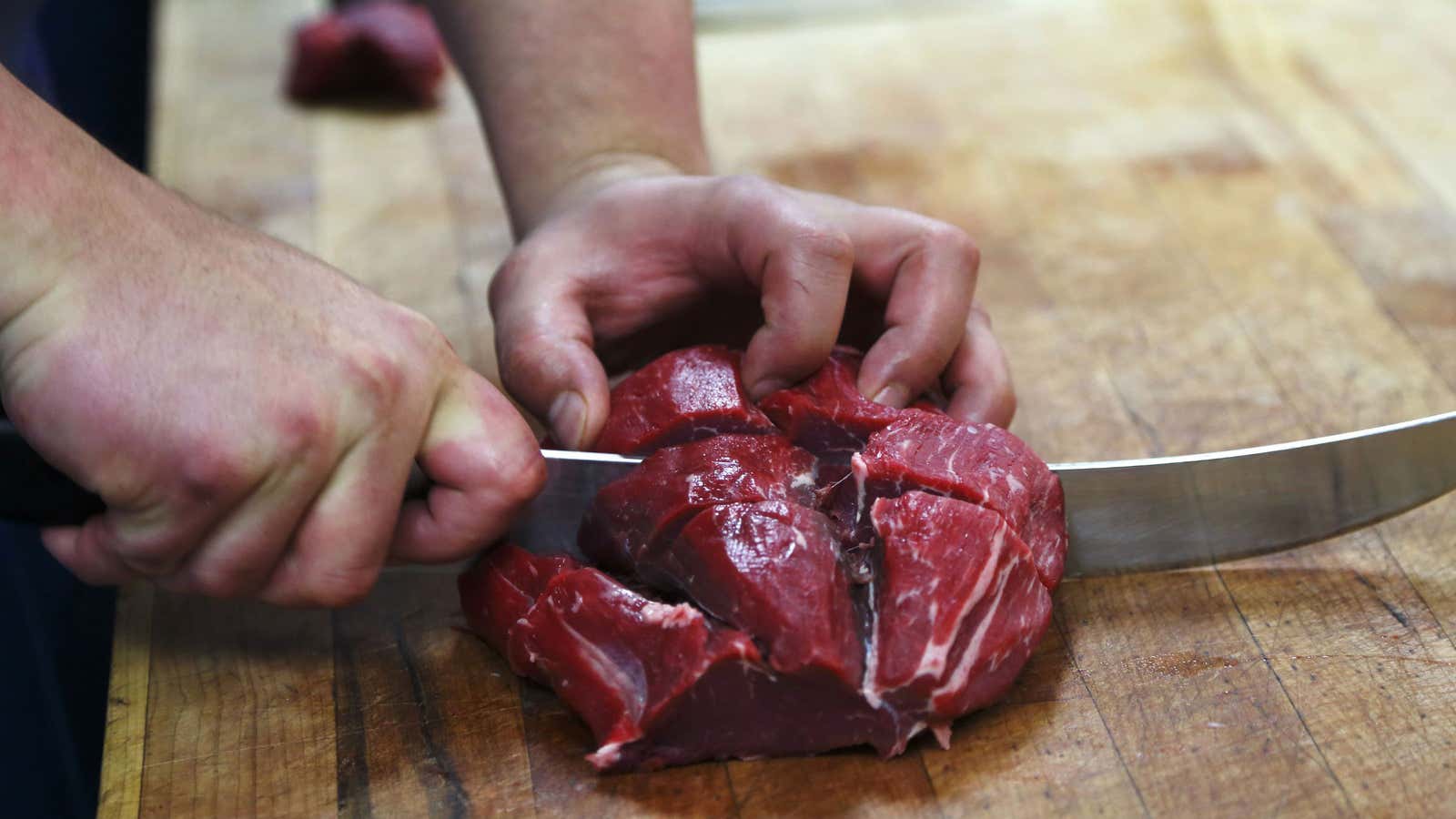In March, the World Health Organization’s International Agency for Research on Cancer (IARC) made headlines when it declared that glyphosate, one of the world’s most commonly used herbicides, “probably” causes cancer in humans.
But in October, the organization is expected to issue a report on a much bigger target: meat. And the industry is bracing for the worst.
“It’s our 12-alarm fire, because if they determine that red and processed meat causes cancer—and I think that they will—that moniker will stick around for years,” Betsy Booren, vice president for scientific affairs at the North American Meat Institute, said at a recent conference, trade publication Meatingplace reported. ”It could take decades and billions of dollars to change that,” she added.
Eating too much red meat has been linked to health problems including shorter lifespans, heart disease, and various kinds of cancer. In April 2014, the IARC cited studies linking red and processed meats to colorectal, esophageal, lung, and pancreatic cancer, and called determining the connection a “high priority.” Since then, the organization has been collecting information to make their final determination.
Booren indicated her group would fight the classification as it did with the US Dietary Guidelines Advisory Committee’s recent report that said healthier diets are lower in red and processed meats. That advice, which was supported by many health experts, caused an uproar from Big Meat.
The IARC classifies substances on a scale of 1 (“carcinogenic to humans”) to 4 (“probably not carcinogenic to humans”). Booren said a 2B designation, or possibly carcinogenic to humans, would be “a win for our industry.” Glyphosate was classified as a 2A, probably carcinogenic to humans.
As explained in a video Booren presented, a 2B classification is usually the result of science showing that the substance “can cause cancer in animals but the jury’s out on humans.”
As the video notes, there are many substances used in daily life that get a 2A or 2B classification, including chemicals used to fry foods and even coffee. But what really matters for anything classified as potentially or probably carcinogenic are amounts. Labeling red and processed meats as “potentially causes cancer” really only means people should eat less of it, not that they can’t eat any at all.
But even that is a tough pill for the meat industry to swallow, as shown in the Dietary Guidelines fight. Booren said an IARC classification would be much worse. “IARC is going to make the Dietary Guidelines (process) look easy,” she said.
